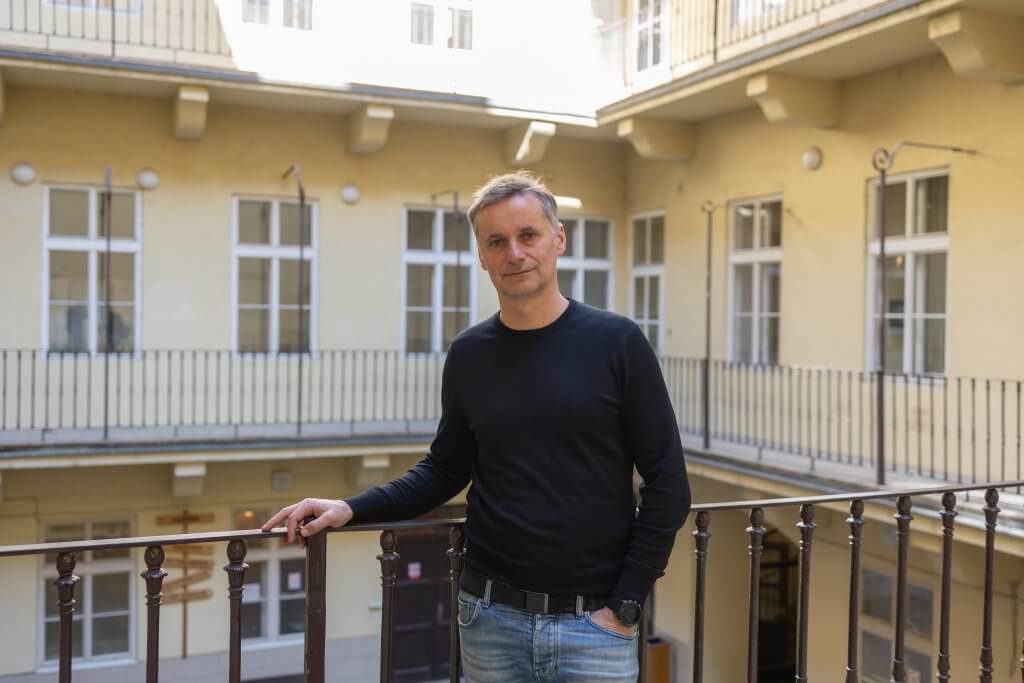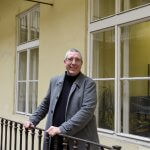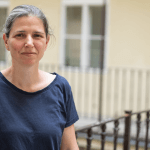Jakub Grygar: Curiosity is essential for a social anthropologist. During my field research, I did feel worried a few times

Read an interview with Associate Professor Jakub Grygar, social anthropologist and head of the Department of Sociology at the Institute of Sociological Studies FSV UK. His research focuses on ethnicity, migration, border anthropology, and social exclusion.
The interview was recorded as part of the De Facto podcast. This episode is hosted by Associate Professor Alice Němcová Tejkalová.

Alice Němcová Tejkalová (ANT): What do you tell people when they ask what a social anthropologist does?
Jakub Grygar (JG): They are often very surprised. Because social anthropology, as I understand it, is a field concerned with cultural diversity. And that sense of wonder and curiosity – that’s fundamental for being able to do this field well.
ANT: You’ve explored a wide range of interesting topics. I was particularly intrigued that you had studied the Czech-Polish, but also the Ukrainian-Polish and Polish-Belarusian borderlands and the relationships within them. What drew you to these specific areas?
JG: It might seem a bit confusing. But if I had to point out what I personally see as the common thread, it’s an interest in socio-material proximity. I’m interested in the relationships that people, things, and spaces enter into or how they interact within them. If I had to identify a core theme that I see running through the various topics I’ve dealt with or am still dealing with, it’s precisely this focus on a kind of socio-material closeness.
In border regions, many cultures and ethnicities meet. We all have some experience of entering a foreign environment – whether on vacation or during an Erasmus exchange. There, we are confronted with the fact that things we’re used to at home often happen or look different. Perhaps also, for example, in language learning, when we realize that there are different expressions or words in another language that refer to the same reality but evoke a completely different imagination. What interests me in border regions, and what led me to the study of border anthropology, is the fact that these places not only reveal differences but also show strong mutual contact and interaction between those who enact certain ideas about how relationships and loyalty among people should be organized.
And these overlaps are more sharply contrasted there. It’s not necessarily just about people living in the borderlands; an important player is always the state as well. So, we have some state policies that, let’s say, aim at homogenizing the space, but on the other hand, there are many hybrid practices created by the border inhabitants.
ANT: People who don’t work in qualitative research might find it hard to imagine what anthropological fieldwork actually looks like. It’s not about questionnaires, numbers, or statistics. How do you work when you’re in the field?
JG: The basic tool for creating data in anthropology is participant observation. Or, we can also call it ethnography, which in the Czech context often historically referred to folklore studies. But ethnography is also a research method based on long-term presence in the field, where, by participating directly in the events being studied, the researcher not only gets closer to the people they’re studying but also, through their immersion in the field and personal practice, has the chance to experience the reality firsthand.
ANT: How do you turn that into a book? For example, your habilitation thesis, which was published by the SLON and is titled Děvušky a cigarety – O hranicích, migraci a moci (Girls and Cigarettes – On Borders, Migration, and Power). The book is based on your research in the Belarusian-Polish borderlands. I’ll add that “girls” refers to cross-border traders. It’s a situation that can even be quite dangerous. How do you organize such an experience into an academic publication? And how do you deal with such an environment at all?
JG: How do you write a book? In my case, with difficulties – it took a long time. I have to thank everyone who supported me. It was a big challenge. The work wasn’t just about cross-border trade but also touched on the shadow economy or informal economy. To be specific, a lot of my work involved being close to or directly participating in the activities of people who were smuggling goods from Belarus to Poland or vice versa. And here, the same rule applies as in any other ethnographic research: you need to get close to people and gain their trust. And then, if you’re lucky or stay long enough, people eventually let their guard down and accept you. They stop questioning whether you should participate in their activities. After a while, they just shrug and bring you along.
ANT: How long were you there?
JG: This research lasted a total of 18 months. But it was intermittent. The longest continuous period I was there was about 10 months. Altogether, we’re talking about a period of three years.
ANT: Weren’t you afraid?
JG: Sometimes I didn’t feel entirely comfortable. But usually, I only realized it afterward. Of course, you worry about things you can’t control. And when you’re among the people you work with, over time you feel like it’s an environment you know and must somehow keep under control. But what I didn’t have under control was the reaction of state authorities. And there, I was worried a few times. That’s true.
ANT: What brought you to this environment? Why did you decide to research this area?
JG: I was building on my previous fieldwork in the Těšín region, in the area between Bohumín and Jablunkov, where I was working on a completely different topic related to the study of social memory. But borders played an important role there, and I thought I’d like to further develop the topic of border anthropology. I was considering where the theme of interethnic encounters could be studied. One important thing for an ethnographer is being able to communicate with the people you’re among. I thought I didn’t want to spend effort learning another new language and would prefer to build on the language skills I already had from elementary and high school – namely Russian, which I had to brush up on, and Polish, which I was already immersed in during my previous research. Based on this pragmatic consideration, the subject of my geographical interest became quite narrow. It’s worth adding that I started my research at the time of Ukraine’s Orange Revolution. There was great hope that Ukraine would integrate into Europe and take a clear course toward the West.


